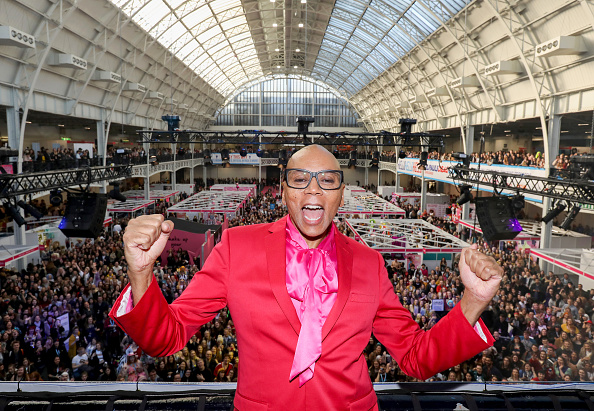Waterworks
Many years ago, I acted in Richard II in the National Youth Theatre (in round about 1872). I played Aumerle and had to cry so that Richard could say to me: “Aumerle thou weep’st, my tender-hearted cousin!” It was my big moment, and was certainly easier than delivering my opening line in Act 3 scene 2, “How brooks your grace the air, after your late tossing on the breaking seas?” – which always had the schoolboy audiences in stitches. I managed to cry every night, but sadly, tears came more readily from my right eye, which was upstage, so I had to sniffle and turn at just the right moment so the audience could see them stream down my right cheek.
These days tears come easily. Pretty much anything will set me off. John Lewis adverts, American rom-coms, inspirational moments in The West Wing (the TV show not the place, obviously), funerals, declarations of love, anything vaguely emotional on Strictly, 70,000 Welsh men and women singing the Welsh national anthem in harmony in the Principality Stadium in Cardiff. Part of me is proud of this lachrymosity. It’s a family tradition. When I was a child, my father, my mother and younger brother would watch the 1937 black and white movie Captains Courageous every year and sob in unison when Spencer Tracey disappeared under the waves, while the precocious little brat whose life he had saved looks on, completely bereft.
But I hate tears when I can’t stop them. When I preached at a close relative’s funeral in Aviemore in 1991, I could hardly finish my eulogy. When I spoke of the survivors’ guilt many of us who have had cancer felt at James Brokenshire’s death this year, I wanted to end with the words from Thomas Hardy’s novel The Woodlanders, “You were a good man, and you did good things.” But my throat clenched, my lungs refused to cooperate and I mangled the words into a gurgled grunt.
Self love à la Rupaul
I‘m always being told that nobody much cares for politicians. We apparently rank somewhere between pigeons and rats. Recent polling suggests that things are getting worse. In 2014, 48 per cent of the country thought politicians were just “out for themselves”, but since the government tried to throw out the Owen Paterson case, that figure has apparently risen to 63 per cent. Only one in 20 people think politicians are in it for the good of the nation.
Maybe it has been ever thus. Shakespeare managed to give a special sneer to the term when Harry Hotspur refers to “this vile politician, Bolingbroke” in Henry IV. And one of Shakespeare’s contemporaries, John Webster, went a step further in The Duchess of Malfi with his description: “A politician is the devil’s quilted anvil; he fashions all sins on him and the blows are never heard.” And yet… I refuse to accept this. In my experience MPs work preposterous hours, they sacrifice their family and social life for their constituencies, they answer emails and casework at all times of the day and night and they repeatedly go the extra mile.
Yes, I’m sure there are some lazy good-for-nothings. And yes, MPs’ selflessness is not limitless. But thank goodness for that. Don’t tell anyone, but MPs are human. They deserve a life. It brings to my mind the words of Rupaul: “How the hell are you gonna love someone else, if you can’t love yourself? Can I get an Amen?”
Identity crisis
Speaking of loving ourselves, I fear the UK is going through a bit of a nervous breakdown. We don’t even know the name of our own country. Is it UK or GB? The government has been running a GREAT Britain & Northern Ireland campaign overseas – but half the world calls us Angleterre or Inglaterra, completely forgetting Scotland and Wales.
So it’s time we loved this wet and windy set of islands again, with a careful pride. These things make me proud. We are the best in the world at telling a story, in plays, in novels or in music, which is why our broadcasters excel. Our national church doesn’t really believe anything too strongly (praise God). We love to travel with an adventurous spirit (and we’ve mostly got over the conquer and pillage phase).
For all its many faults (especially the winner takes it all aspects of first past the post), our political system means that MPs have to make themselves available to their constituents in a way that few other countries allow. This was made apparent when foreign correspondents struggled to explain how Sir David Amess could be killed at his ‘constituency surgery’, a term that is so alien it has no translation in French or Spanish. And however much we like a joker, we never care for a demagogue.


